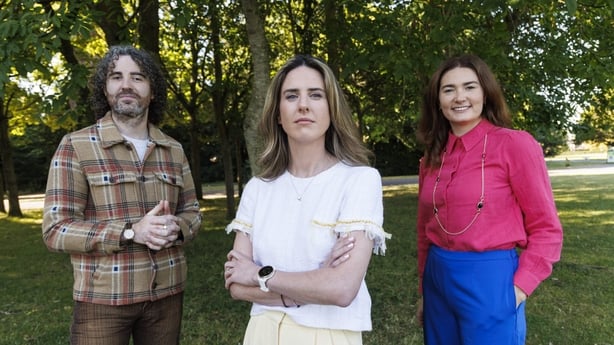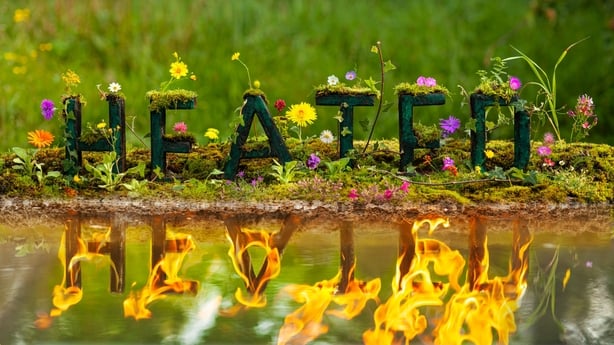Climate change is an overwhelming crisis that can leave individuals feeling powerless, but there are steps - both big and small - that each of us can take to move the dial in the right direction.
Presented by Hannah Quinn Mulligan, Dr Michelle McKeown and Rónán Ó Dálaigh, RTÉ One's Heated will return for a second series with stories of hope, inspiration and practical endeavours as we push to cut emissions.
"Climate change impacts us all," says Dr McKeown, "whether we're talking about extreme weather events or threats to our local food systems. I think because the show focuses on local action, we're showing that everyone can contribute to the solution - no matter where they live."
Stories surrounding the climate crisis are often negative, but this series aims to empower viewers by delving into the inspirational world of citizen activism.
Some people are quietly doing amazing things to make our island a better place. #Heated tells their stories.
— RTÉ One (@RTEOne) October 14, 2024
Starts tomorrow night at 7pm 📺 pic.twitter.com/Sh9qBUIOul
These actions may seem tiny on a global scale, but if more people follow their example together they can make a big difference.
"When people see that solutions are within their reach, they're more likely to get involved," Dr McKeown insists. "I hope Heated empowers viewers and makes them realise that climate action isn't just for experts or policy makers; everyone has a role to play."
"What I personally enjoyed about Heated was that it was hopeful," she continues. "The issues can be so overwhelming, and I really feel that hope comes from action."
A lecturer in Environmental Geography in the Department of Geography in UCC, Dr McKeown explains that she is constantly being updated on the latest statistics surrounding climate change, so focusing on the human stories can feel like finding light in the dark.
"I get stuck in the data a lot of the time so it's hard for me, sometimes, to stay hopeful," she admits. "Then when I see what people are doing on the ground, and the strides that people are making, it really gives me hope. That's what I really enjoyed about the show: the ambition of people and what they were doing."

Reflecting on the recent media coverage surrounding Storm Helene and Storm Milton in the US, Dr McKeown says its important that Ireland begins to prepare for its own changes.
"We're not immune to the effects of climate change, really," she insists, noting that future planning will be essential to caring for our country and its coastline.
"I think we've come a long way in Ireland," she says. "I think we're making the right strides in some areas - particularly in renewable energy - but I think there's a lot more we can do. When it comes to climate adaptation, I don't think we're properly prepared."

Reflecting on the changes that individuals, households, and communities can make, Dr McKeown promises that some solutions are easily attained.
"There's always a misconception that solutions need to be high tech or they need to be expensive, but actually a lot of them are quite simple," she says.
"In Ireland, we have such a deep connection with our landscape from our coasts, to our peatlads, to our forests," she continues. "Many of the solutions are actually routed in our traditions. It's culturally significant as well as environmentally."
Wrapping up our chat, I asked Dr McKeown for three small and simple action points:
Sign up - check in to see what actions are being taken by your county council or local community groups that you can get involved in. Or see where you could do to make an impact, for example, organising a beach clean up.
Water reservation - turn off the tap while brushing your teeth and be mindful of how often you're sticking on the dish washer and washing machine.
Shopping local - By buying products from Ireland, you will cut down on both your carbon footprint and water footprint. You'll also supporting your local community.



